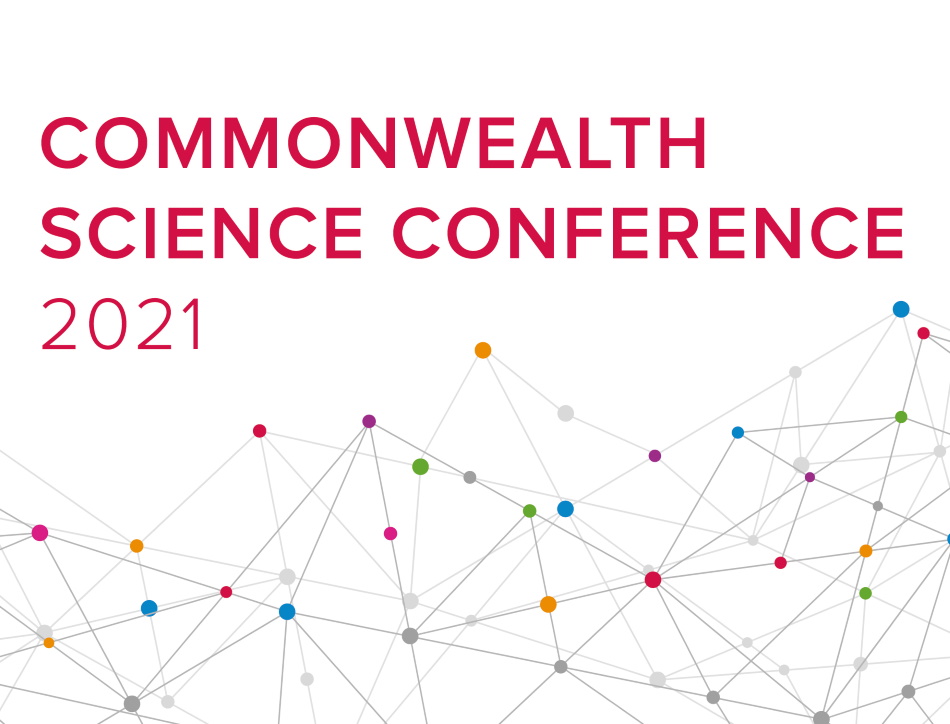Links to external sources may no longer work as intended. The content may not represent the latest thinking in this area or the Society’s current position on the topic.
Day 4 highlights - 2021 Commonwealth Science Conference: Science for a resilient future

The third Commonwealth Science Conference will take place virtually from 22-26 February 2021, co-organised by the Royal Society and the African Academy of Sciences. The conference is funded via the UK government’s Global Challenges Research Fund (GCRF), part of the UK’s Official Development Assistance (ODA).
The theme of the conference will be “Science for a resilient future”, with three main sub-themes:
- Developing resilient energy systems – climate resilient infrastructure; decarbonising energy systems; and a circular economy for the Commonwealth
- Nurturing resilient ecosystems – challenges and opportunities for the blue economy; trajectories, challenges and solutions for biodiversity; and adaptation and mitigation challenges for coastal states in the era of climate change
- Building resilient societal systems – pandemic preparedness before and after Covid-19; climate change adaptation and disaster risk reduction; and a ‘just transition’ to a sustainable Commonwealth
Day 4 highlights include keynote talks and panel discussions:
- Panel discussion on Towards a sustainable recovery from Covid-19
Chair: Professor Dame Anne Johnson, Professor of Infectious Disease Epidemiology, University College London. UK
Speakers:
Paul Dickinson, Executive Chair, CDP, UK
Dr Tolullah Oni, Clinical Senior Research Fellow, Medical Research Council Epidemiology Unit, University of Cambridge, UK
Professor Salim Abdool Karim, CAPRISA Professor for Global Health in the Department of Epidemiology at the Mailman School of Public Health at Columbia University - Dr Agnes Kalibata, President of the Alliance for a Green Revolution in Africa (AGRA) on Building resilient food systems to achieve the Sustainable Development Goals
- Professor Richard Leakey, Professor of Anthropology at Stony Brook University’s Turkana Basin Institute on Science and Africa
Watch Baroness Scotland, the Secretary General of the Commonwealth’s, closing remarks
For all enquiries, please contact csc@royalsociety.org
Abstracts
Building resilient food systems to achieve the Sustainable Development Goals
Dr Agnes Kalibata, President, Alliance for a Green Revolution in Africa (AGRA), Rwanda
With less than 10 years remaining, the world is not on track to achieve the Sustainable Development Goals (SDGs) and targets of the 2015 Paris Declaration, and in some cases like hunger and Non-Communicable Diseases (NCDs0, the world is moving in the wrong direction. The COVID-19 pandemic has meanwhile exposed dangerous deficiencies in our food systems, actively threatening the lives and livelihoods of people around the world, particularly the most vulnerable and those in fragile contexts. Millions more are at risk of hunger and losing their jobs.
Building more resilient, inclusive, and sustainable food systems is an imperative for all communities and countries in the world. Even before the onset of the current crisis, the evidence for transformation had never been clearer. Food systems are in many cases part of the problem, but there is scientific consensus that transforming food systems also offers one of the best opportunities we have to change course and realize the vision of the 2030 Agenda, in support of the UN Secretary-General’s call to “build back better” from COVID-19. Over the past year, the pandemic has also highlighted the connectedness of countries around the world and the need to bring the best of our collective science, innovation and technology to bear in our search for solutions. If these are harnessed properly, then we can change the trajectory of the decade and scale up food systems approaches that work for all people, the planet, and prosperity.
As Special Envoy of the UN Secretary-General for the Food Systems Summit, Dr Agnes Kalibata is working day-to-day with Member States and constituencies all around the world to accelerate transformative change in the way the world produces, processes, consumes, and disposes of food. Her remarks will speak to not only the need for more resilient food systems to achieve the SDGs, but even more importantly, how actors across the world and the scientific community need to contribute to his process to make it a reality for all people in their own unique country and community contexts.
Science and Africa
Professor Richard Leakey, Chairman, Turkana Basin Institute LTD, Kenya
The fate of the natural world is of great concern and requires solutions. This talk outlines the action and commitment required by governments, individuals, and the global scientific community to enable societies to live sustainably and in balance with nature. This talk will be followed by a live Q&A session with Professor Richard Leakey.
Towards a sustainable recovery from Covid-19
This panel discussion will bring together several of the conference’s keynote speakers, who include some of the Commonwealth’s leading experts on health and other global challenges. In the run-up to the Commonwealth Heads of Government Meeting in Kigali in June 2021, they will consider how scientists and policymakers can help their societies, and the Commonwealth as a whole, emerge from the COVID-19 crisis in as sustainable and inclusive a manner as possible, whilst also addressing other critical challenges such as climate change and biodiversity. Speakers confirmed for this panel discussion include Paul Dickinson, Executive Chair, CDP; Dr Tolullah Oni, Clinical Senior Research Fellow, Medical Research Council Epidemiology Unit, University of Cambridge; and Professor Salim Abdool Karim, CAPRISA Professor for Global Health in the Department of Epidemiology at the Mailman School of Public Health at Columbia University.
